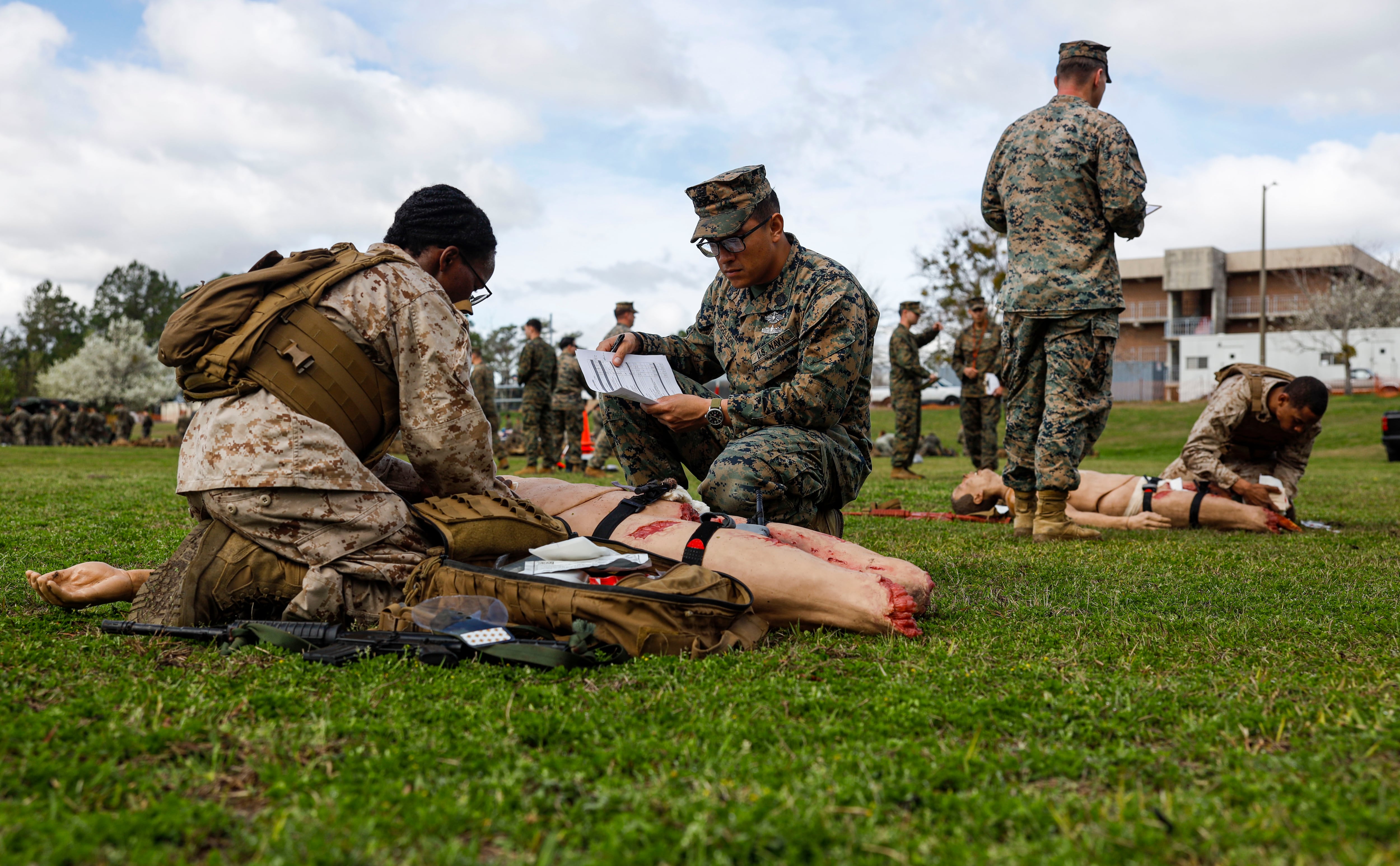The Navy stood up a new, restructured command this month to bolster its expeditionary medical capabilities as part of a “strategic shift” in how the service navigates combat trauma readiness.
Previously known as the Naval Expeditionary Medical Training Institute, the revamped Naval Expeditionary Medicine Warfighter Development Center at Camp Pendleton, California, aims to provide unit level training, shore up combat trauma skills, and certify expeditionary medical platforms, the Navy said.
The Navy also updated the new center’s organizational structure, placing it under Naval Medical Forces Pacific rather than Navy Medicine Operational Training Command.
This shift makes the center an echelon 4 command, eligible for additional resources and influence in Navy medicine.
“This transformation represents more than a change in name; it marks the continued evolution of Navy Medicine’s mission to support the warfighter, strengthen our operational capabilities, and provide unmatched medical expertise both in garrison and in forward-deployed locations,” Rear Adm. Guido Valdes, Naval Medical Forces Pacific commander, said in a statement.
Those who undergo education at the Naval Expeditionary Medicine Warfighter Development Center will be trained to issue care from Role 1 to Role 3 medical units.
Role 1 medical units are comprised of first responders, Role 2 medical units provide emergency surgery and advanced trauma care, while Role 3 medical units provide specialty surgery, intensive care, and medical specialty care.
“The impact of this change will resonate across Navy Medicine and serve to amplify our role in ensuring that medical forces are ready and fully equipped to support any mission, anytime, anywhere,” Valdes said.
The Navy established the Naval Expeditionary Medicine Warfighter Development Center during a ceremony on Oct. 4.
Naval Medical Forces Pacific heads up 11 different Navy Medicine Readiness and Training Commands in the 3rd and 7th Fleets.





